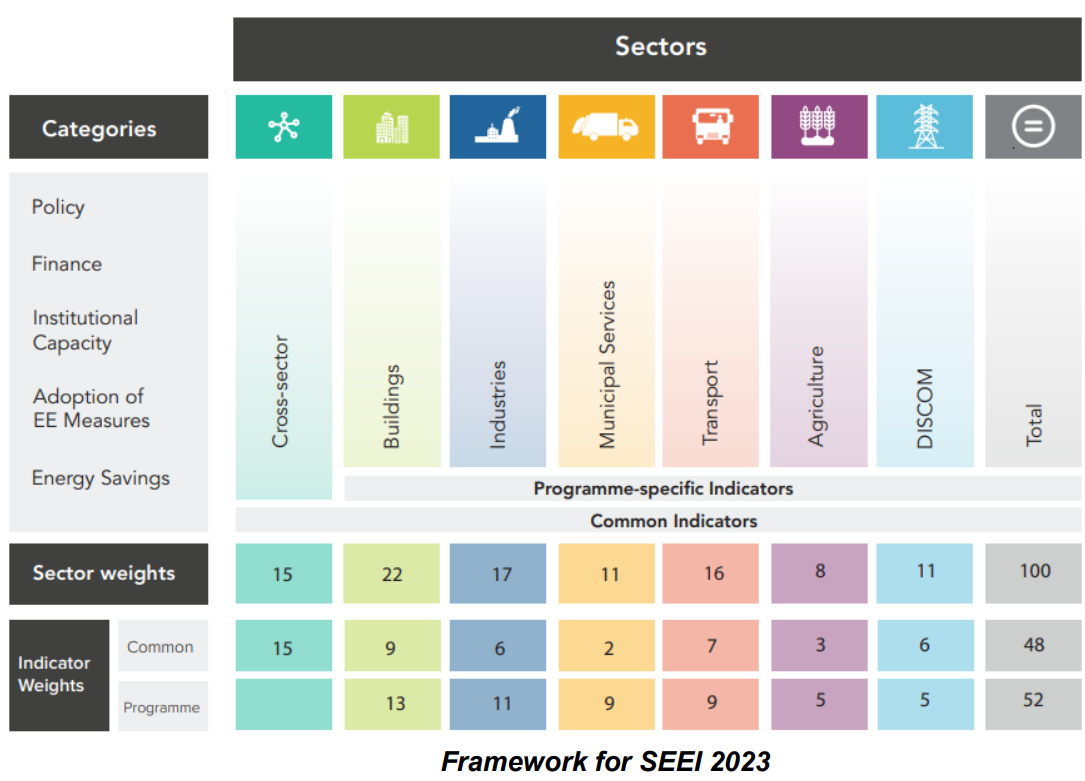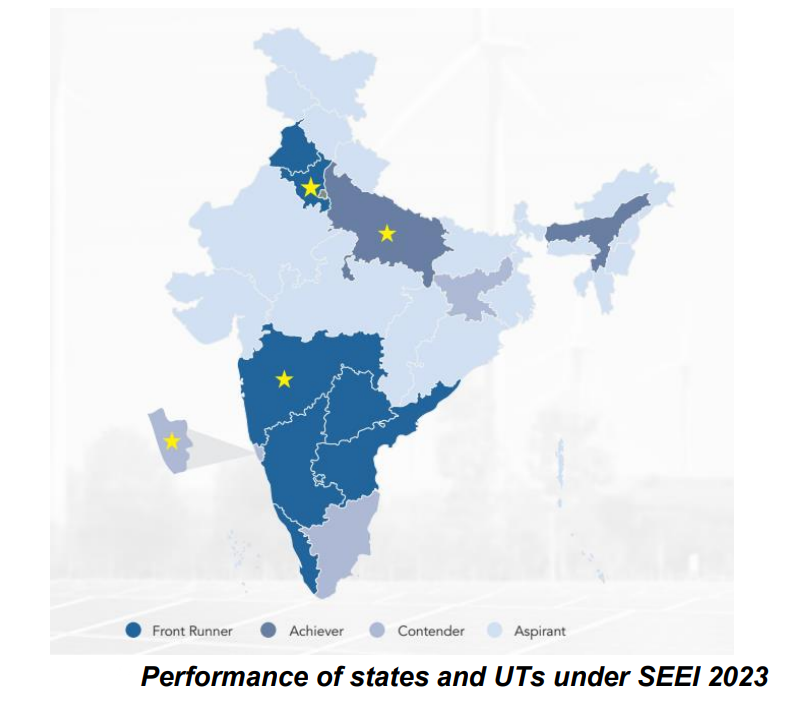Bureau of Energy Efficiency | 09 Mar 2024
Why in News?
The 22nd Foundation Day of the Bureau of Energy Efficiency was recently celebrated with the theme "Energy Transition through Electrification and Decarbonization in India" and the State Energy Efficiency Index 2023 was released.
What is the State Energy Efficiency Index (SEEI) 2023?
- About:
- It is the 5th edition of the index, developed by the Bureau of Energy Efficiency (BEE), a statutory body under the Ministry of Power, in association with the Alliance for an Energy-Efficient Economy (AEEE).
- It evaluates the performance of 36 states and UTs across seven demand sectors using 65 indicators, including qualitative, quantitative, and outcome-based measures.
- In SEEI 2023, states and UTs are classified as 'Front runner' (>=60), 'Achiever' (50-59.75), 'Contender' (30-49.75), and 'Aspirant' (<30) according to their total scores.
- States and UTs are also classified into four groups based on their total final energy consumption (TFEC) for peer-to-peer performance comparison: Group 1 (>15 million tonnes of oil equivalent (MTOE)), Group 2 (5-15 MTOE), Group 3 (1-5 MTOE), and Group 4 (<1 MTOE).
- The top-performing states in each group are Karnataka (Group 1), Andhra Pradesh (Group 2), Assam (Group 3), and Chandigarh (Group 4).
- Key Findings of SEEI 2023:
- Front runner (>=60):
- Seven states in 'Front runner' category in SEEI 2023: Karnataka (score 86.5), Andhra Pradesh (83.25), Haryana, Kerala, Maharashtra, Punjab, and Telangana.
- Achiever (50-59.75):
- Two states, Assam and Uttar Pradesh are in the ‘Achiever’ category,
- Contender (30-49.75):
- Three states, Goa, Jharkhand, and Tamil Nadu, are in the ‘Contender’ category.
- Aspirant (<30):
- Maharashtra and Haryana most improved states, with score increases of 18.5 and 17 points, respectively.
- 15 states have improved their scores compared to SEEI 2021- 22.
- Substantial decline in score observed in Rajasthan, primarily attributed to lack of reported data.
- Front runner (>=60):
Bureau of Energy Efficiency (BEE):
- BEE was established on 1st March 2002, under the provisions of the Energy Conservation Act, 2001, under the Ministry of Power.
- The mission of BEE is to assist in developing policies and strategies for energy efficiency with the primary objective of reducing the energy intensity of the Indian economy.
- Functions: It is responsible for regulatory and promotional functions outlined in the Energy Conservation Act, 2001.
- BEE has helped India reduce its energy consumption by around 3.5%.
UPSC Civil Services Examination, Previous Year Question:
Prelims
Q. On which of the following can you find the Bureau of Energy Efficiency Star Label? (2016)
- Ceiling fans
- Electric geysers
- Tubular fluorescent lamps
Select the correct answer using the code given below:
(a) 1 and 2 only
(b) 3 only
(c) 2 and 3 only
(d) 1, 2 and 3
Ans: (d)


